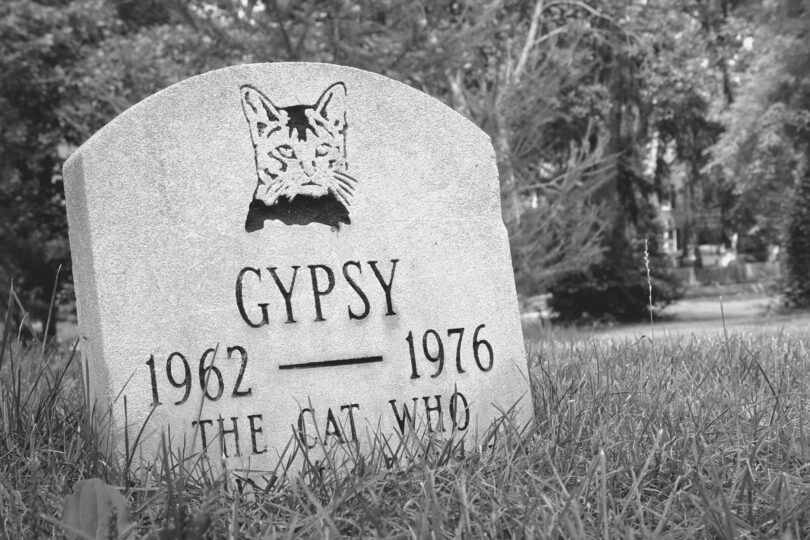Note: This article was originally published on our sister site Love & Let Go.
Legally Lay Your Kitty to Rest
Many of us know what it’s like to lose a pet, and barn cats are members of the family, too. What do you do with the mortal shell that your beloved cat’s soul occupied during its time on Earth?
The legality of backyard pet burials vary from state to state and can even vary by county or city. Although it’s most likely okay to bury your cat on your property, we strongly suggest speaking with your local government to determine the precise laws.
We’re going to discuss the various options for dealing with your barn cat’s remains after death. Finally, we’ll offer some suggestions for how to cope with the loss of your cat.
Risk Factors
One major reason to avoid a backyard burial is because it can put other pets and wildlife at risk.
If your cat was euthanized by the vet, the drugs used to euthanize can remain in your cat’s system for a while. The same is true if your pet died of a communicable disease.
If another animal comes into contact with your cat’s remains, that animal could potentially get sick. For ranches, farms, and horse barns, there likely are a lot of other animals in the vicinity.
Burial How-tos
If you have contacted your local government and gotten the green light to bury your cat on your property, there are a few things to take into consideration.
It is important to treat the burial just like any excavation project.
Find out what your city’s guidelines are for digging holes to avoid gas, water, or electric lines that may be running underground.
Also, be mindful of burial-specific rules. Some locations require that your pet be covered by three feet of soil.
Alternatives
The most common alternative to a backyard burial is cremation. Most veterinary offices have relationships with one or more cremation services.
When your cat is cremated, you have the option to get the ashes returned or have them scattered or buried by the cremation staff.
Frequently Asked Questions
When is it NEVER okay to bury my cat?
You absolutely should NOT bury your cat if he showed signs of rabies or other deadly communicable diseases. You also should never bury your cat anywhere but on your own private property.
If you are renting, live in an apartment, or considering a park burial, it is not appropriate to bury your cat in those situations.
How will I memorialize my cat if I can’t bury him?
There are countless ways to cope with the passing of your cat and help you remember him. Here are just a few…
- Get an urn containing his ashes after cremation
- Make a clay cast of his paw prints
- Have a professional painting made
- Incorporate his ashes into jewelry or another memento
- Set up a small altar or memorial
Parting Thoughts
Burying your cat requires research into local city, county, or state laws and can result in a fine if you do not follow the regulations in your area.
Although we don’t want to discourage you from burying your cat if you have your heart set on it, it’s important to remember to go about a burial the right way.
Finally, consider your other options for disposing of your cat’s remains and take time to think about how you might want to memorialize your pet to help you cope with his passing.
P.S. If you found this article helpful, check out:
- Barn Dog Pain Solutions 101 (Home Remedies, Holistic, etc.)
- Dogs in Distress: Do Barn Dogs Grieve?
- Gone, Kitty, Kitty: 6 Tips for Coping with Barn Cat Loss
- 5 Signs It May Be Time to Bid Your Farm Dog Farewell
